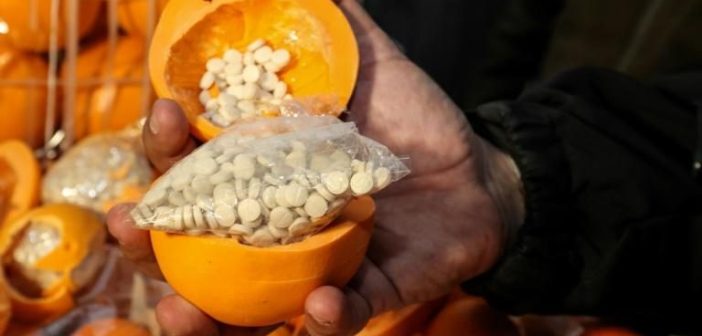
By AFP -- BEIRUT: Cash-strapped Lebanon has scrapped a deal for a second terminal at Beirut’s international airport, the transport minister said Thursday, after critics raised transparency concerns in the $122 million project. Lebanon “will not proceed with the contract,” Public Works and Transportation Minister Ali Hamieh said on Twitter, adding that the decision came “following legal controversy.” Some had questioned how a caretaker government with limited powers could announce such a major infrastructure project, in a country where entrenched political barons are accused of systemic corruption.
Civil society organizations and lawmakers noted the absence of a tender process and a lack of involvement of the Public Procurement Authority. Jean Ellieh, head of the authority, said “the contract did not pass through” the regulatory body as required under a 2021 law. Last week 10 civil society groups, including Transparency International Lebanon, warned of “serious abuses” in the procurement law’s application which “open the door to corruption and nepotism.”
By Jessy Bains, Editor at LinkedIn News – A group of high-profile signatories, including Tesla CEO Elon Musk and Apple co-founder Steve …

by Elizabeth Hagedorn @ElizHagedorn - almonitor.com -- WASHINGTON — The Biden administration on Tuesday unveiled new sanctions aimed at curbing Syria’s production and export of Captagon, an illegal amphetamine that serves as a key source of revenue for the Syrian regime. The sanctions are the administration’s first to target Syria’s Captagon trade and also its first use of so-called Caesar Act, a law that allows for sanctions on persons or companies that do business with the Syrian government. In a statement, Secretary of State Antony Blinken vowed the United States would continue targeting Syria's drug traffickers and “those who provide support to the Syrian regime’s vicious war.”
An estimated 80% of the world’s Captagon supply is produced in Syria, where the stimulant has become the war-ridden country’s main export. The UK government, which unveiled its own sanctions in coordination with the US, described the Captagon trade as a "financial lifeline" for Assad's regime worth $57 billion. Among those designated by the US Treasury Department’s Office of Foreign Assets Control was Khalid Qaddour, a Syrian businessman who is a close associate of Maher al-Assad, a brother of Syrian President Bashar al-Assad who heads the Fourth Division of the Syrian Arab Army. According to OFAC, Qaddour is responsible for managing the Fourth Division's revenues from facilitating the production and trafficking of Captagon. Also designated was Samer Kamal al-Assad, a cousin of the Syrian president who allegedly oversees Captagon facilities in the regime-controlled port city of Latakia in coordination with the Fourth Division and certain associates of the Lebanese militant group Hezbollah. Assad reportedly owns a Captagon production factory in the Qalamoun region near the Syria-Lebanon border.
By Jake Perez, Editor at LinkedIn News — Twitter CEO Elon Musk is offering employees stock grants based on a $20 billion …
Khazen History


Historical Feature:
Churches and Monasteries of the Khazen family

St. Anthony of Padua Church in Ballouneh
Mar Abda Church in Bakaatit Kanaan
Saint Michael Church in Bkaatouta
Saint Therese Church in Qolayaat
Saint Simeon Stylites (مار سمعان العامودي) Church In Ajaltoun
Virgin Mary Church (سيدة المعونات) in Sheilé
Assumption of Mary Church in Ballouneh
1 - The sword of the Maronite Prince
2 - LES KHAZEN CONSULS DE FRANCE
3 - LES MARONITES & LES KHAZEN
4 - LES MAAN & LES KHAZEN
5 - ORIGINE DE LA FAMILLE
Population Movements to Keserwan - The Khazens and The Maans
ما جاء عن الثورة في المقاطعة الكسروانية
ثورة أهالي كسروان على المشايخ الخوازنة وأسبابها
Origins of the "Prince of Maronite" Title
Growing diversity: the Khazin sheiks and the clergy in the first decades of the 18th century
Historical Members:
Barbar Beik El Khazen [English]
Patriach Toubia Kaiss El Khazen(Biography & Life Part1 Part2) (Arabic)
Patriach Youssef Dargham El Khazen (Cont'd)
Cheikh Bishara Jafal El Khazen
Patriarch Youssef Raji El Khazen
The Martyrs Cheikh Philippe & Cheikh Farid El Khazen
Cheikh Nawfal El Khazen (Consul De France)
Cheikh Hossun El Khazen (Consul De France)
Cheikh Abou-Nawfal El Khazen (Consul De France)
Cheikh Francis Abee Nader & his son Yousef
Cheikh Abou-Kanso El Khazen (Consul De France)
Cheikh Abou Nader El Khazen
Cheikh Chafic El Khazen
Cheikh Keserwan El Khazen
Cheikh Serhal El Khazen [English]
Cheikh Rafiq El Khazen [English]
Cheikh Hanna El Khazen
Cheikha Arzi El Khazen
Marie El Khazen